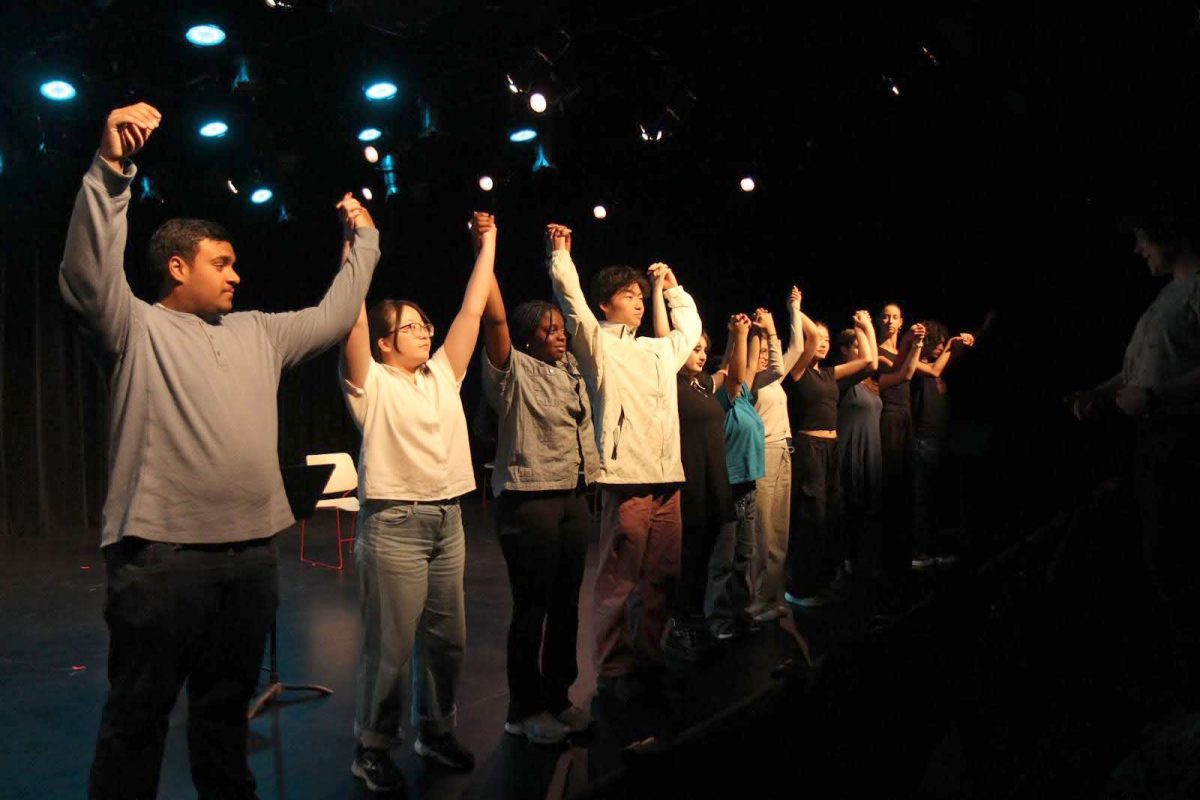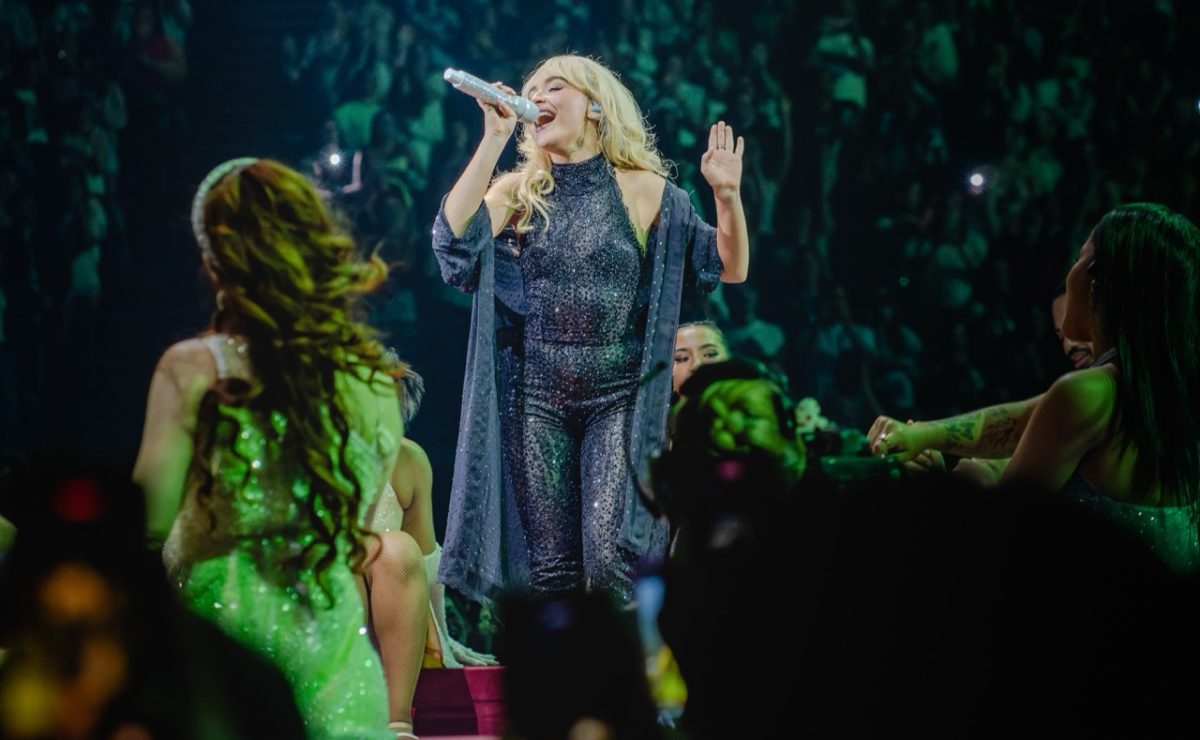Chances are you’ve either formed your own opinions about the first season “Girls” or heard someone else’s. I sat down with Noah Koch ‘14, an MCS major, to discuss the evolution of the show, as it wraps up its second season.
Sophie Nikitas: Why do you think “Girls” inspires such strong reactions?
Noah Koch: I think it’s very fair for people to be frustrated and confused by a show about 20-somethings in NYC with an entirely white cast. Except people of color who guest star in one or two episodes or scenes.
SN: Do you think it’s unrealistic?
NK: It’s somewhat unrealistic. There are definitely alcoves of all-white groups of friends, but the lack of interaction with people of color is pretty apparent.
SN: But I don’t think that’s necessarily inaccurate. I grew up in the kind of community that the show is representing. I went to a really nice private school in a very hip, affluent neighborhood in Brooklyn, where everyone goes to liberal arts schools and does unpaid internships after graduation while living on their parents’ money. So to me, the show is actually just making fun of that life and criticizing it in a way. The fact that there is an all-white cast did not strike me as odd at all. I’ll be the first to admit that my friend group at home is predominantly white, and seeing peoples’ reactions to that aspect of the show actually pointed out to me how odd that is and helped me criticize that in my own life. Zadie Smith had a great quote about this in The Rumpus: she said “I kept on wondering how many of those journalists [who are criticizing the lack of diversity on the show]—it’s a genuine question—have black people in their lives. I thought, Probably not very many.” I think a lot of critics are embarrassed that the show is pointing out a problem in their own lives.
NK: I think you are one of the few people who are thinking that way, though. I definitely think that the show is critical of the demographic it represents, but to what extent does the audience even perceive the criticism? There are definitely people who fucking love this show and totally idolize Lena Dunham.
SN: Why do you think people are responding that way?
NK: Representations of everyone on TV are so limited. For example, men are represented in this very masculine role. All the roles are normative and reassert mainstream ideology of what men should be, so that people can recognize it, identify with it and allow it to reinforce what they’re already thinking. I mean, it’s cool what they’re doing with having Lena Dunham naked, and having it filmed in this way that’s a lot less objectifying than most cinematography, representing a variety of women’s bodies. I’m just wary of how much it gets … deified. Every article that came out before “Girls,” and a lot of things now are saying, “Wow. Look at this show. Look at what it’s doing. This is the biggest jump of progress ever!” But I’m wary of labeling this show as this next great step, because I don’t know if it’s going to bring about a huge change.
SN: I do want to talk about body image in this show. I personally do see it as a big step. Despite the many problems within the show, I appreciate that it is taking on this one, very large, very important issue that often goes unaddressed. And again, yes, that is one population, but why is that not an accomplishment? Lena Dunham takes off her clothes pretty regularly in the show, and a lot of people react negatively to that, like “Why are you making us watch something so gross? Why do we have to look at your blobby body?” Audiences are saying this. TV critics are saying this kind of stuff. The kind of catty, immature dialogue that goes on between middle schools girls is making its way into social media and professional journalism. Lena Dunham is looking you in the face, straight-up naked, no makeup or flattering lighting, and daring you to tell her that she’s ugly, or that she doesn’t deserve these beautiful men that she hooks up with. And if you do react in that way—”Why does she deserve these guys? She’s ugly, she’s fat,”—then you are falling into that trap. She’s testing you and you’re failing.
NK: I don’t mean to discredit the fact that Lena Dunham is tackling body image, I just think it’s problematic to isolate certain problems and fail to recognize that they’re always connected to other problems. And the show doesn’t do a great job of recognizing where they fit in with the larger scheme of issues and oppressions. I’m frustrated with the notion in mainstream liberal thought of “trickle-down progress:” that once we do this one small thing it’ll start fixing everything else. That doesn’t work. It never has.
SN: So how do you think that Lena Dunham could use this way she’s tackling body image in order to encourage greater change?
NK: One of the first things that the show could do better is recognize its fallacies, because while it is self-deprecating, it’s not necessarily self-critical. Just because you have a show where you’re mocking white, 20-something college graduates, living in Brooklyn, you still have a TV show, while other groups have zero representation. Owning up to that more would make a big difference. Or bringing in writers of color. I wouldn’t be surprised if there aren’t any people of color writing for “Girls.” I know Dunham is the head writer, and I respect not wanting to tokenize people of color. But her choice to address race in the show only came after people pointed out that the show was all white.
SN: Do you think that Donald Glover’s two-episode arc was an appropriate response to the backlash to the all-white cast?
NK: I definitely don’t think it went far enough. Some of the dialogue they had was good. Having Hannah uncomfortably being like, “Huh, I don’t see race, I don’t see it like that,” and Donald Glover’s character being like, “You have no idea what you are talking about. I am black and that’s stupid.”
SN: And it was important that he was asking her not to just tokenize him, saying, “I’m not an accessory.” That was, in a way, telling critics that she didn’t want to put people of color in the show just for the sake of having token characters of color.
NK: Except then he disappeared and was never brought up again.
SN: I was so disappointed in that! I felt like the show was moving toward something good, and then just cut it off.
NK: I understand how that kind of fight could be grounds for a breakup, but it doesn’t count as fixing things if you never bring it up again.
SN: That’s the problem with this season: it goes halfway trying to address big problems, and then just kind of gives up.
NK: I agree, it didn’t really tackle the issues that it promised it would bring up this season. But I did like certain dialogue. I loved that episode in the brownstone. I loved the fight between Jessa and her husband.
SN: A lot of people hate Jessa!
NK: What’s the argument for hating her? She’s unrealistic?
SN: I think she’s great! Yeah, she’s unrealistic, she’s ridiculous, but it’s entertaining to watch. I think she’s one of the most stunning people I’ve ever seen. She gets naked fairly often too, and she’s not a size zero like Allison Williams [who plays Marnie], and it’s beautiful. It’s weird to me that the show has all these women who are awesome and beautiful and are telling you to go fuck yourself if you call them fat and then there’s Allison Williams. Why is she there? She sucks.
NK: Maybe that’s the joke.
SN: Actually that same article where the writer called Lena Dunham’s body “blobby,” the critic says [quoting NY Post]: “Interestingly, the gorgeous Marnie is the one who is now totally unlucky in love. Sometimes it just doesn’t pay to be smart, breathtakingly beautiful, nice and kind” (NY Post). Maybe Marnie doesn’t succeed because she thinks that all those qualities entitle her to everything, and she gets to be the worst. Well, Hannah is kind of the worst too, but at least she has some substance. Annoying substance, but substance.
NK: Because the bottom line is that it is TV. There’s nothing real about what’s going on in that show. Especially with how surreal the brownstone episode was …
SN: You mean Dunham might be playing along with the criticism that the show isn’t realistic by taking it even farther into the realm of ridiculousness?
NK: Yeah. Like a fantastical caricature. I don’t know. I like “Girls.” I think it’s a fun show. I don’t think it’s life-changing, I don’t think it’s necessarily progress; it is what it is. I talk about it too much for how little I feel about it.






